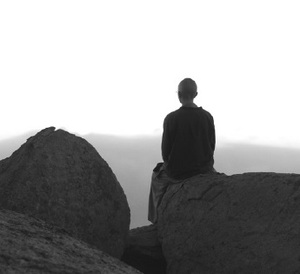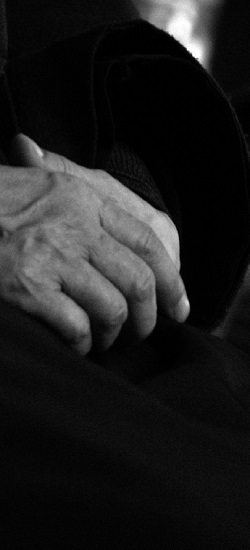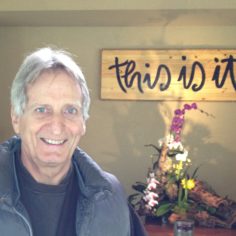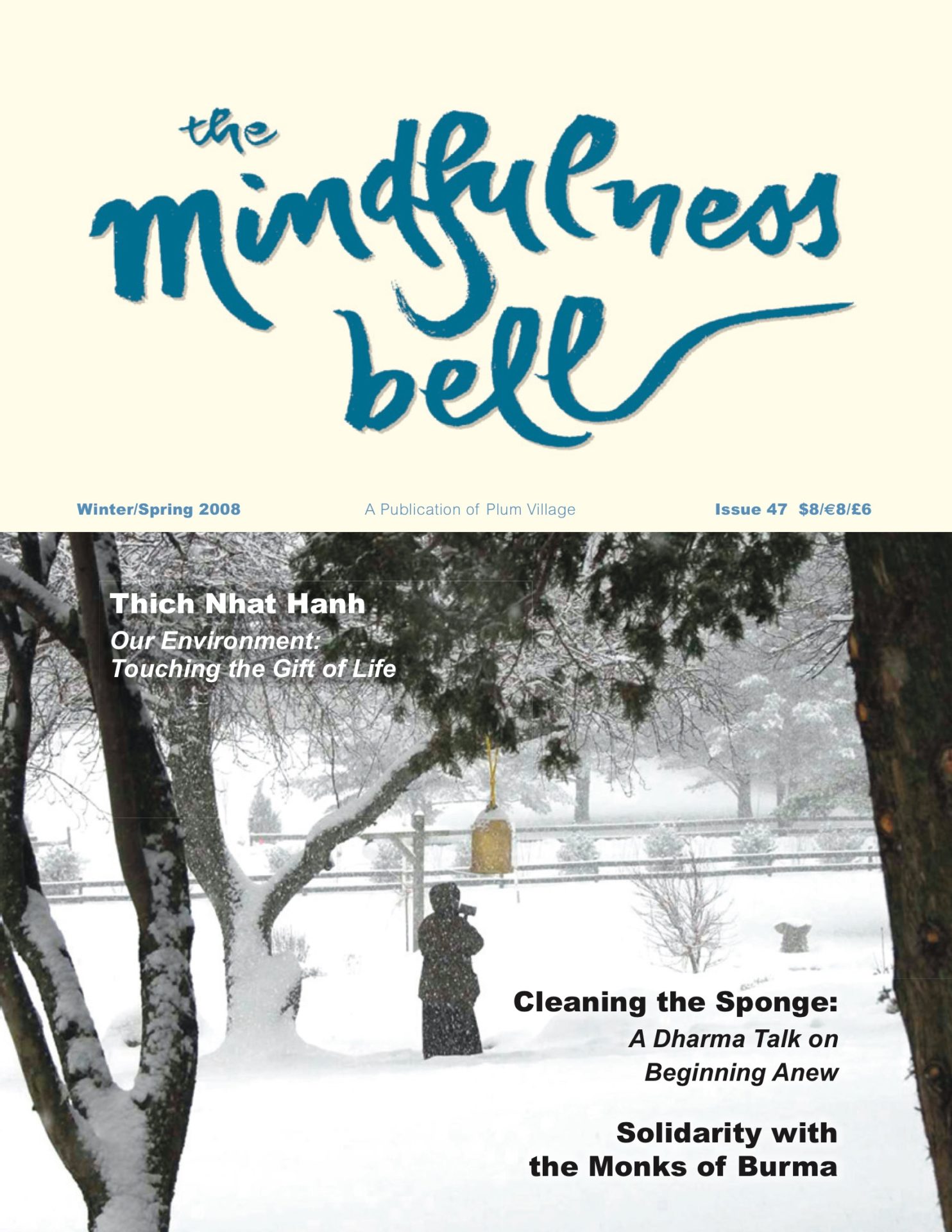
In each issue of the Mindfulness Bell readers take on a different topic, writing in short essays about their personal experience and their practice.
The Fourth Mindfulness Training
Aware of the suffering caused by unmindful speech and the inability to listen to others, I am committed to cultivating loving speech and deep listening in order to bring joy and happiness to others and relieve others of their suffering.

In each issue of the Mindfulness Bell readers take on a different topic, writing in short essays about their personal experience and their practice.
The Fourth Mindfulness Training
Aware of the suffering caused by unmindful speech and the inability to listen to others, I am committed to cultivating loving speech and deep listening in order to bring joy and happiness to others and relieve others of their suffering. Knowing that words can create happiness or suffering, I am determined to speak truthfully, with words that inspire self-confidence, joy and hope. I will not spread news that I do not know to be certain and will not criticize or condemn things of which I am not sure. I will refrain from uttering words that can cause division or discord, or that can cause the family or the community to break. I am determined to make all efforts to reconcile and resolve all conflicts, however small.

Awakened Silence of the Heart
The Fourth Mindfulness Training has been a bell of mindfulness, a wise teacher, a good friend, and a road back from hell for me.
In my early life, my siblings and I were relentlessly bombarded with violent and angry language between our parents and issued daily reminders of our worthlessness, stupidity, and so on. We internalized the language and began to speak that way to ourselves and to others, even those we loved.
At my first retreat at Omega with Thay and the nuns and monks, I could not keep from weeping tears of gratitude and relief when we lay friends were addressed with so much respect, gentleness, even tenderness. When we were offered the opportunity to take the Trainings, my heart opened with joy. To join such a community and to practice in such a way for myself and for my loved ones seemed a precious gift.
I focused on the Fourth Training in my statement of aspiration and was given the name Awakened Silence of the Heart. The name has unfolded like a lotus, revealing its meaning to me over years of committed and joyful practice.
A small but profound miracle of mindfulness happened recently. I dropped one of my favorite mugs. It shattered. The miracle was that no abusive cascade of internal criticism followed. (“That was stupid. Clumsy fool! Etc.”). There was only compassionate silence, an awakened silence. After cleaning up the shards, a benevolent bell of mindfulness sounded inside me, inviting me to consider that the accident occurred because I was hurrying a bit. The mug and I might have been saved some suffering if I had not been ahead of my breath. The awakened silence, the space in the living room of my mind, made me feel happy. I bowed to the Training in gratitude.
A companion incident occurred later in the week. An office mate, while hurrying to set up for a meeting, broke a lovely piece of pottery made for me by a friend. In the beginning of the practice, I might have exploded with irritation and criticism. In the later years, I would have seethed with resentment and contempt while saying, “That’s okay. It doesn’t matter.” Now, my heart says gently, “All is impermanent. I’ve enjoyed its beauty a long time.” My body, speech and mind are in alignment with that kind remark. The friend who broke the bowl could feel easy.
One of the most delicious fruits of this practice is with my blood family. When I told my father that I was returning to Plum Village last year for a retreat, he launched into a tirade about cults and craziness. I was able to listen without reacting and to hear what was not being said. My awakened heart understood that he was afraid I would not come home, since I had once referred to the sangha as my spiritual family. Breathing in, allowing him to wind down, I said gently, “You are my father. I will always come home as long as you are alive.” His body softened. His heart softened. “Okay,” he said, “have a good time.”
In the spaciousness opening in the silence of my heart is also trust. I am becoming truthful enough to speak of my suffering and my need and desire for support without feeling painfully imperfect, full of shame or criticizing myself for not being good enough. I am able to more often say: “Dear sangha friend, can you help?” And to trust that they will come and breathe with me and listen deeply and speak lovingly.
As the Awakened Silence of my Heart grows, I am free. I suffer less. And I create less suffering in others, in my family, and in the world.
Diana Hawes Awakened Silence of the Heart, True Wonderful Light
Chapel Hill, North Carolina, U.S.A.

The Broadway Bicycle Boy
It was summer in New York City. I was walking along Broadway near 112th Street, when a boy about eight years old came riding his bicycle up from behind me and crashed a few yards in front of me. He was wearing shorts and I could see he had skinned his knee. He was hunched over, grabbing his knee, squinching his face in pain, but holding it in and not emitting a sound. I approached him, knelt down and pointed to his knee. “That must hurt!” I said. “YES!!!!!! It really hurts!” he screamed, and burst into tears. As he finished his round of crying, he looked up to see who this stranger was. I smiled, pointed to his knee again and said, “That must still hurt!” “YES!!!!!! It still hurts!” and he was off again, sobbing and pointing to his knee.

I made a simple decision to not rush on. I stayed and paid attention to his hurt. After a few more rounds of crying about his knee, he looked up to see if I was still there. Do you know what he did next? For the following fifteen or twenty minutes, he pointed to scars on different parts of his body and told me how this one happened and that one happened and this one over here happened. It was as if he had never had a chance to tell someone completely enough how much it hurt or how scared he was. He had quite a few stories. After doing this for a while, his tone was happy and confident. He got on his bike and rode away.
As I walked on, I thought how many scars we all carry, physical and emotional, and how we rarely get a chance to really tell the stories to the point of healing. And so we find ourselves, at whatever age, dragging behind us a sackful, or in some cases, a huge trunkful of old unhealed hurts that weigh us down, depress our joy, sap our confidence, distort our thinking, and otherwise cause us to hide our true goodness.
Each of us is just waiting for the right conditions to tell our stories.
John Bell, True Wonderful Wisdom
Boston, Massachusetts, U.S.A.

Stopping the Avalanche

Here at 8000-foot elevation, I am sitting quietly and gazing at an avalanche field near the top of Mount Shasta, California. The forest has been torn and many strong trees lie broken across the field. Jagged four-foot-high dead trunks still stand upright, looking like ghosts of people I have known and lost. So much breakage here even after ten years.
Sadness sweeps through me now as I remember ways that my words have avalanched angrily and broken friendships. I grieve the damage that I have caused. Despite a daily practice of many years, words can rush out of me just as this snow roared down the mountain. And like these fallen older trees even the strongest friendship and community can fall by the power of unmindful words.
“Words once spoken cannot be taken back.”
To understand stopping as a spiritual practice is one of Thay’s most valuable teachings for my fiery energy, because it is so uncomplicated and very clear: Stop when hurrying, stop when gulping food, stop when a friend needs you to listen, stop when driving too fast, stop when the phone rings... stop and breathe at stop signs.
These beloved practices have brought depth and happiness to me. But when emotions are strong and rushing out of your mouth, how do you even wake up enough to stop them?
There are the seven “stop sign” words that stop me before an avalanche and that can even stop me during an avalanche: always, never, all or none of the time, everybody, everything, nobody, nothing.
These seven stop signs tell me that the avalanche is coming or that I am already being carried away. They tell me that I am lost in black and white stories of my mind. After all, these seven words are never true!
If I say one of these words, I know to stop speaking immediately and breathe. I’ve learned to tell my family member or friend that I might need to stop abruptly and talk later. In my time out, as I calm myself, I inevitably realize that my point of view is neither balanced nor accurate! I become more ready to truly listen. (It’s very helpful to let friends and family know about this practice ahead of time so they don’t interpret your leaving as another whack of your anger. We support each other in this practice with an agreement that we will come back together calmer and more able to understand each other.)
If I think one of these words, I know that I am caught in creating a particularly dramatic off-center story. Time to detach from the interior talking and practice re-grounding — walking meditation is especially effective. If I wait (often about forty minutes) until the interior conversation finally comes to balance and compassion, whatever story the mind is creating transforms and becomes more positive.
If someone else says always, never, all or none of the time, everybody, nobody, everything, nothing, whether it’s about me or about somebody else, I am now usually less reactive to what they say. After all I know these words! They come out of suffering and can easily create more suffering. So it’s time for deep listening.
On Mt. Shasta, the avalanche field speaks to me again. Huge chunks of bark are composting into soil. Now there are the tiniest small firs bending into lovely diagonals from harsh winds and winters. They look like delicate bonsais. I see this beauty and the fresh life growing even amidst the wreckage.
We can all take heart to begin anew.
Laurel Houghton True Virtue and Harmony
Fairfax, California, U.S.A.
For the Summer 2008 issue, the topic will be the Fifth Mindfulness Training. Please send your story to editor@ mindfulnessbell.org by February 15. Keep your writing personal and concrete, and under 500 words. Include your Dharma name if you have one, and your city of residence.
Photos courtesy of the monastic sangha


